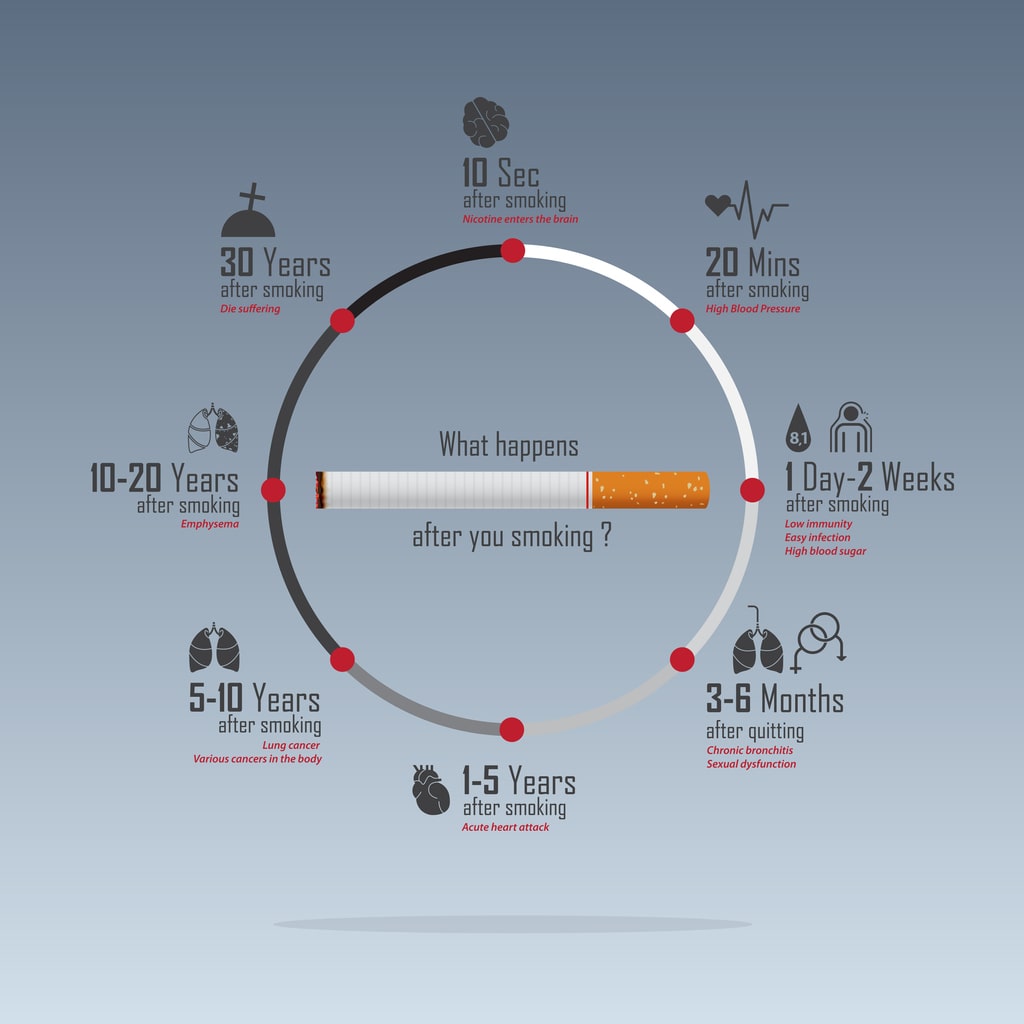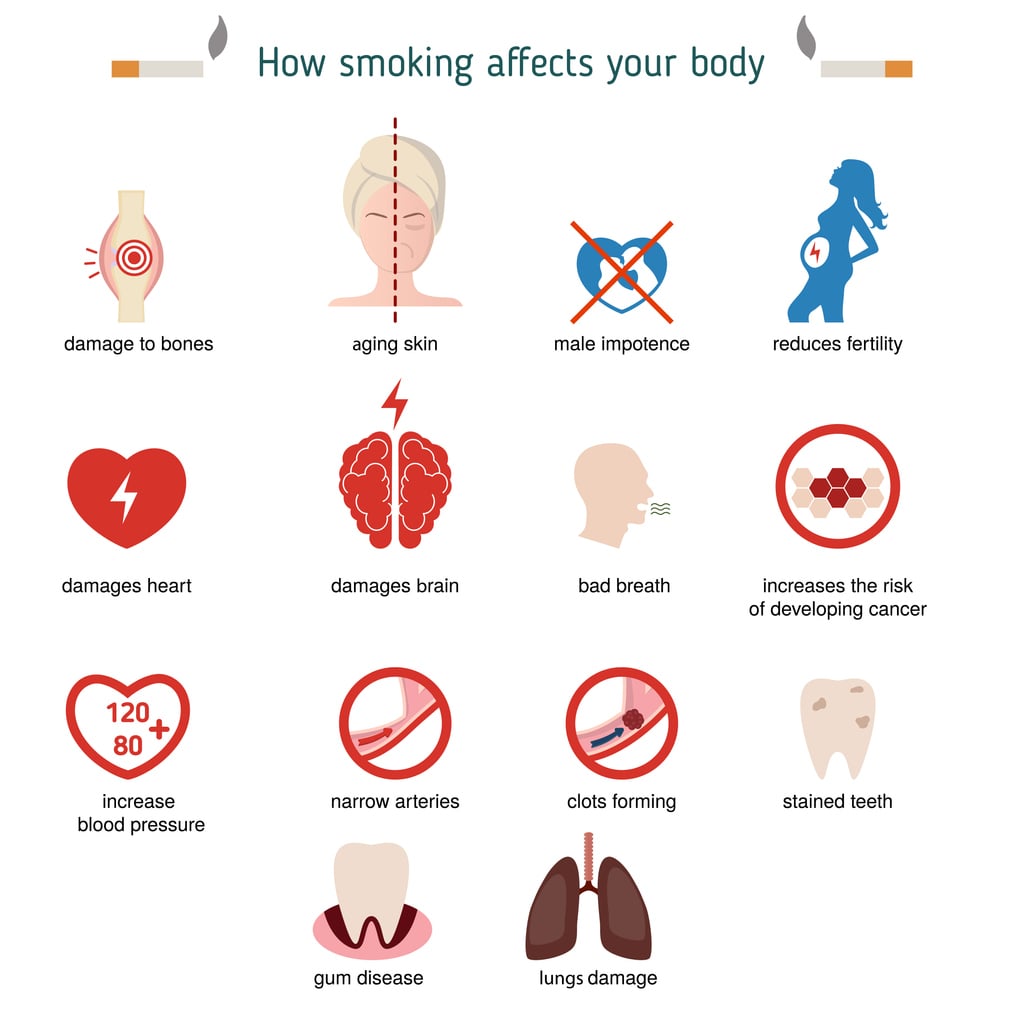Smoking & SUDs
At SUD RECOVERY CENTERS, we inform and educate all clients about the dangers of smoking and the benefits of tobacco cessation. And we integrate the following five steps into our programming:
Ask We identify and document tobacco use status for every client during every counseling session.
Advise In a clear, strong, and personalized manner, we urge all clients who use tobacco to quit.
Assess We ask clients whether they are willing to make a quit attempt at this time.
Assist For clients who are willing to make a quit attempt, we offer cessation medication (over the counter or prescription prescribed by one of our Nurse Practitioners or Physicians) and provide counseling to help them quit.
Arrange For clients willing to make a quit attempt, we arrange for follow-up contacts, beginning within the first week after the quit date.
Health Effects of Cigarette Smoking

Smoking tobacco causes more deaths among clients in substance abuse treatment than the alcohol or drug use that brings them to treatment.
A seminal 11-year retrospective cohort study of 845 people who had been in addictions treatment found that 51 percent of deaths were the result of tobacco-related causes.
Many people have already successfully quit using tobacco.
SAMHSA – Tobacco Use Cessation During Substance Abuse Treatment Counseling Accessed May 21, 2020 from
https://store.samhsa.gov/sites/default/files/d7/priv/sma11-4636clin.pdf
Smoking cessation in substance use disorder treatment can increase a person’s chances for long-term recovery and reduces risks of smoking related illnesses.
The rate of tobacco-related deaths is substantially higher for people with substance use disorder (SUD) as compared with the general population. Despite this, in 2016 nearly 53 percent of substance abuse treatment facilities in the United States did not offer tobacco cessation services. (Emphasis supplied.)
Aside from the many known health benefits of quitting, tobacco cessation increases the odds of long-term abstinence from illicit drug use.
SAMHSA publishes a Tobacco Cessation Toolkit for Substance Use Disorder Treatment Programs – September 25, 2018. Accessed May 20, 2020 from https://www.samhsa.gov/newsroom/press-announcements/201809251100
Cigarette smoking is very common among people with substance use problems. Past-month smoking was reported by 74 percent of people ages 12 and older who received SUD treatment in the past year—a rate approximately three times higher than that for people who did not receive treatment in the same period.
The rate of tobacco-related deaths is substantially higher for people who have received SUD treatment services compared with the general population.
Tobacco cessation can have mental health benefits. Beyond initial withdrawal symptoms, for smokers, quitting is associated with reduced depression, anxiety, and stress as well as improved positive mood and quality of life, compared with not quitting.
Quitting smoking has synergistic benefits for SUD clients, increasing their sense of mastery and helping them focus on a positive lifestyle.
Smoking Cessation Medications. The following nicotine replacement therapies have been approved by the Food and Drug Administration (FDA) for smoking cessation:
- Nicotine patch (over the counter)
- Nicotine gum (over the counter)
- Nicotine lozenge (over the counter)
- Nicotine nasal spray (prescription)
- Nicotine inhaler (prescription)
The following non-nicotine medications have been approved by the FDA for smoking cessation:
- Bupropion (Zyban®, prescription)
- Varenicline (Chantix®, prescription)
SAMHSA – Implementing Tobacco Cessation Programs in Substance Use Disorder Treatment Settings – Accessed May 21, 2021 from Implementing Tobacco Cessation Programs in Substance Use Disorder Treatment Settings (samhsa.gov).

